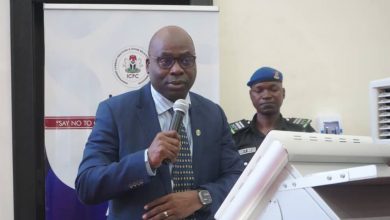Limiting Parental Influence on Choice of Career For The Child For Optimal Performance
By Promise Etim

It is the dream of every parent to give their children quality education to enable them fit into the society they will grow to be part of in the future.
On the part of the child, such aspiration may be in tandem with what he or she wants or sometimes dissenting views. This is basically relative to the cognitive skills such individual must have developed over time.
While the child may prefer a career path based on his or her inert ability and will, most parents actually feel the aspirations of such children may not earn them respect and corresponding financial accruals in the future.
There is a need to strike a balance, as both parties can always find a common ground, to ensure interest of everyone is captured. This article will attempt to examine the ripple effect of parent’s influence on the career path of children and the need to also allow the child have his or her perspective considering such a vital element.
The story of a successful entrepreneur and wood carver, Bassey, is a typical illustration of what most lads face today, which most of them actually may need a life time to recover and embrace the other side of life.
Bassey, on completion of his secondary education was compelled by his parents to enroll in the University to study Pharmacy, as against business management he rooted for.
His love for woods and design came from his affinity with a wood carver he met at the street while as a young boy. This was quite strange on the part of his parent, who knew he did not attend a technical college, eliminating the thought that he might have wood manufacturing and carpentry as a subject.
The desire of Bassey’s parent to compel him to study pharmacy, was borne from a societal balance point of view, having seen children of contemporaries excel on completion of their courses, forgetting their own son (Bassey) has phobia for Chemistry and Biology.
At the end, Bassey could not secure the required point capable of securing him admission in the University, despite attempting five times. The situation became desperate, forcing the youngman to relocate to a new location, amidst continuous pressure from his parents.
There are lots of Basseys out there, who are facing similar challenges, most have been pecked by parent to study courses they ought not to in higher institutions. The logic is, such individual will have to fine tune his or her mind to accept the reality he or she is faced with.
As experienced in the University, folks who end up reading what they did not develop passion for at the initial stage, usually struggle to catch up with brilliant minds in the class. Most eventually, graduate with low grades, because at the time they find their rhythm, it may be between a year to completion of their programme.
The quest for admission into the University is also another critical factor that has affected many. In a situation an individual seeking for admission record a score far less than what is required for admission into a preferred course by the Joint Admission and Matriculation Board (JAMB), such is either forced into settling for a course that will accept the score he or she garnered or switch institution.
In the event of a situation similar to what is aforementioned, parent have key role to play to motivate and bring out the best from their ward. One of the fundamental things to note, should be how the individual is coping with the course, monitor his progress, and also evaluate his affection for what he or she initially intended studying.
If observed that there is a gap, it is necessary to discuss with the affected student and outline areas he or she may need help, counseling or motivation. It is advisable to direct such concerns to persons with relevant solutions to help get the affected individual back on track, or pursue a long term solution in the interest of all parties.
It is intellectually deficient to force a student who craved for Science based courses like Chemistry, Physics, Mathematics, Further Mathematics among others, to switch at the point of having a direction to Arts or Humanities based subjects, most times in the interest of the parent.
While the intellectual capacity of the student is proportional to the quality of what he or she gets from institution of domiciliation, it is also pertinent for parents to consistently check the performance of their wards at all levels of education. The model that is best fit should be from the bottom to top.
The progression should ideally be from primary to secondary, down to higher institution of learning. At the primary and secondary level, parents have the sole prerogative to monitor subjects their kids perform optimally and compare notes with instructors, to tune the focus of their children towards a potential career path.
For parents, who logically may not understand the dynamics or how to interpret the core Interest of their wards at home and school, the services of professionals can also be sought for, to help define such and give direction for optimization of the goals of the child for better productivity in the future.
For optimal performance and enhanced productivity in the future, it is highly recommended that parents should limit their influence on the choice of career of their children, but rather monitor, evaluate and advise them accordingly based on what they have observed them develop unique interest for, even at a very tender age.




